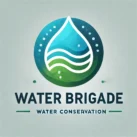global laws
United Nations Watercourses Convention (1997)
The UN Watercourses Convention establishes a legal framework for managing and conserving transboundary watercourses, which are rivers, lakes, and aquifers shared between two or more countries. It focuses on cooperation and equitable use of shared water resources to prevent conflicts and promote sustainable practices.
(SDG 6) – Clean Water and Sanitation (2015)
Part of the UN’s Agenda, SDG 6 focuses on ensuring universal access to water and sanitation and promoting sustainable water management globally. It has become a global benchmark, pushing governments, businesses, and communities to prioritize water conservation and access.
The Geneva Water Hub (2014)
The Geneva Water Hub addresses water-related conflicts and promotes water diplomacy to foster peace and sustainable management of water resources.It has played a crucial role in resolving disputes over shared water bodies and has facilitated international dialogues on water conservation as a tool for promoting peace.
The Water Action Decade (2018)
Declared by the United Nations, the Water Action Decade is a ten-year initiative to focus global efforts on sustainable water management and conservation. has mobilized resources and partnerships to tackle water scarcity, reduce water wastage, and improve resilience to climate-related water challenges.
Bonn Charter for Safe Drinking Water (2004)
The Bonn Charter outlines a global approach to ensuring safe and sustainable drinking water for all while promoting efficient water use. It has guided several nations and organizations to prioritize water-saving measures in urban and rural water supply systems, ensuring long-term sustainability.
World Bank Initiative (2016)
The World Bank Initiative highlights the critical role of water in driving economic stability and growth. It has facilitated sustainable water management projects worldwide, enabling nations to meet increasing water demands without compromising future resources.
